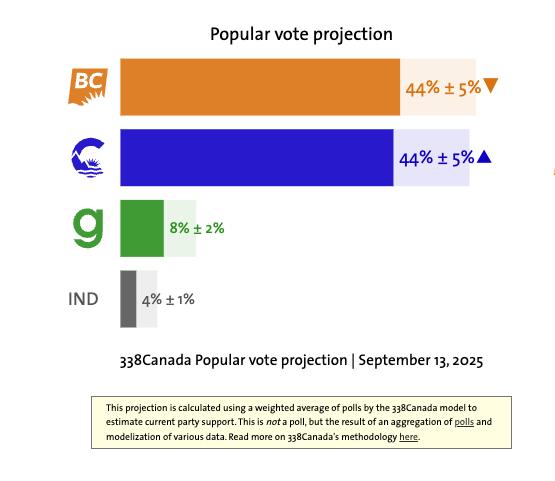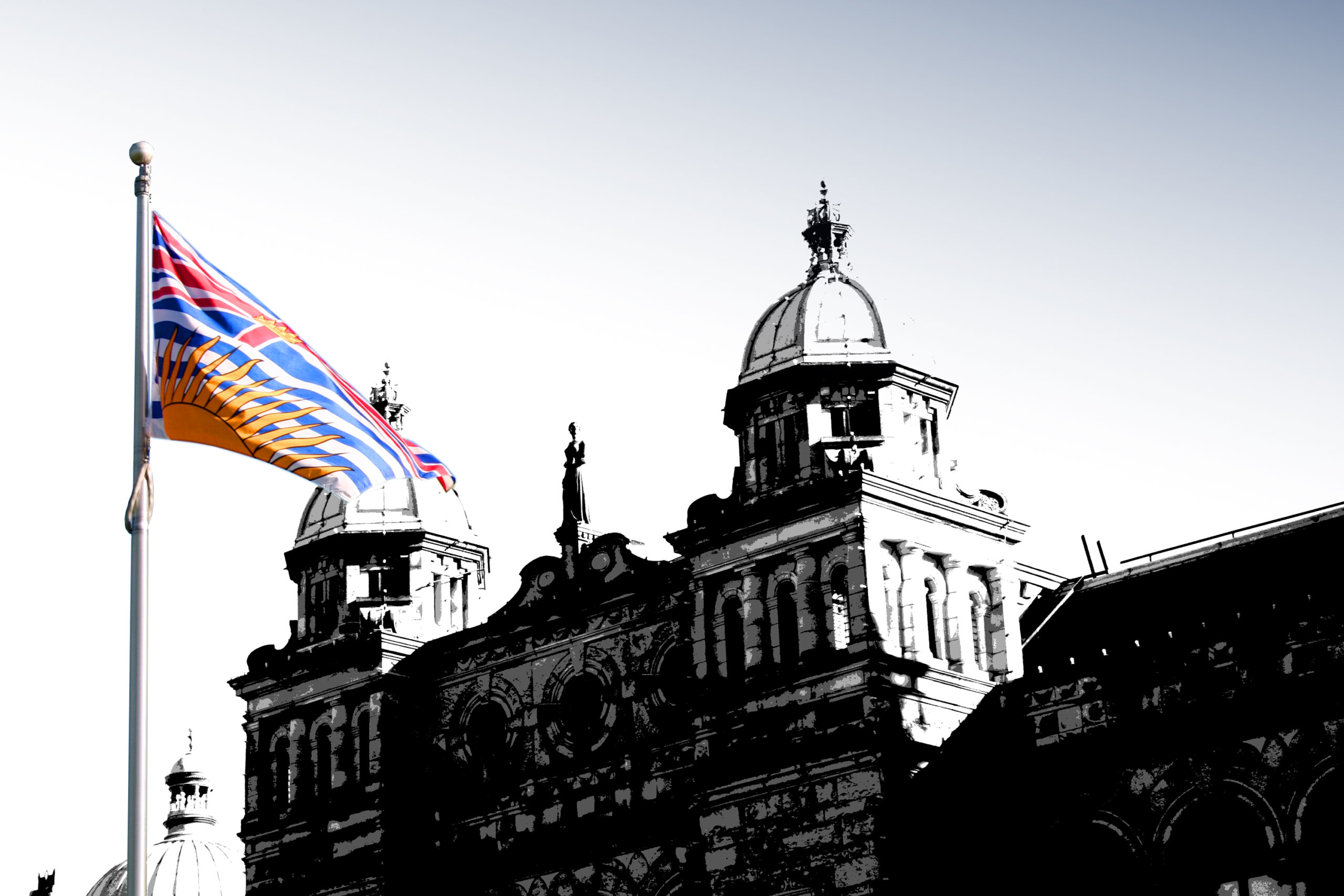Setting the scene
The BC legislature reconvenes on October 6, 2025, following a four-month hiatus since rising on May 29. This fall session is brief, lasting only 24 sitting days and concluding on November 27. Currently, Premier David Eby is faced with navigating a complex political environment, leading a slim-majority NDP government with the support of the BC Green Party. This legislative session is expected to focus on infrastructure, energy, and managing deficit spending, while responding to growing public pressure to address affordability.
The Official Opposition, the BC Conservative Party, led by John Rustad, outperformed expectations in the 2024 election, in part due to the collapse of BC United. However, Rustad still faces internal divisions in his party, highlighted by the recent expulsion of MLA Elenore Sturko from caucus during the Union of British Colombia Municipalities Conference. This follows the departure of MLAs Tara Armstrong and Jordan Kealy in the Spring resulting from Dallas Brodie’s removal from caucus by Rustad. Armstrong and Brodie have formed a more socially conservative party titled OneBC. This reduced Conservative caucus shifts the balance in the Legislature to 47 BCNDP MLAs, 40 Conservative MLAs, 2 Green Party MLAs, 2 OneBC MLAs and 2 Independents: Elenore Sturko and Jordan Kealy.
The province also faces a record $11.6 billion deficit and rising unemployment, with the deficit projected to rise to $12.6 billion by next year. This strain is attributed to a significant loss of revenue from the carbon tax, a weakened housing market, and massive wildfire recovery costs. This economic outlook is likely to heavily influence the legislative priorities, particularly around government spending in the session.

Premier Eby’s approval rating has sunk to its lowest point since taking office. Currently, he is tied for the second least popular Premier across Canada. The Angus Reid Institute reports that 41% of British Columbians approve of his performance, down five points since June and 12 points since March. Eby will face a leadership review from the delegates at the BCNDP convention on November 14th.
Look West, just not for an oil pipeline
Premier Eby enthusiastically welcomed the news that the first tranche of major nation building projects announced by Prime Minister Carney included two in British Columbia. The first is the LNG Canada Phase II expansion in Kitimat, which would double LNG production capacity, and second, the Red Chris copper-gold mine expansion in the northwest, projected to boost Canada’s copper output by over 15%. In addition to championing these projects, Premier Eby recently joined in the celebration of the Highland Valley Copper Mine Life Extension project near Logan Lake, and in February announced that the province will fast-track 18 major resource projects worth around $20 billion. This focus on the resource sector is a pivot for Premier Eby who previously focussed on clean energy projects and expanding the housing supply. The existential threat of U.S. tariffs and ballooning deficit has radically shifted the B.C. Premier’s focus, however, not every resource project is welcome in B.C.
On October 1st, Alberta Premier Danielle Smith announced Alberta’s intent to submit a formal application to the Federal Major Projects Office as the proponent to build an oil pipeline to the west coast. Premier Smith said that the province of Alberta is currently the proponent because private industry has not yet committed the necessary capital for a pipeline like this, given existing federal regulations, in particular the restrictions implemented in 2019 on oil tankers in B.C.’s northern waters. Premier Eby did not mince words responding:
The problem that we have is that Premier Smith continues to advance a project that is entirely taxpayer-funded, has no private sector proponent, is not a real project, and is incredibly alarming to British Columbians, including First Nations along the coast, whose support is required for the success of the billions of dollars in real projects that I’m talking about.”
Coastal First Nations, including the Heiltsuk and Gitxaała Nations, alongside environmental groups, echoed these statements emphasizing that the risk of a pipeline or tankers on their lands, waters, and way of life is too great. The prospect of an oil pipeline carrying diluted bitumen from Alberta to the west coast of BC dates to 2006 when the Northern Gateway Pipeline was proposed but never built. Over the past two decades, the only successful expansion of oil pipeline capacity heading west required direct investment from the federal government.
Aboriginal title and private property
On August 7, the B.C. Supreme Court granted Aboriginal title to nearly 7.5 square kilometres of land in Richmond, along with fishing rights in the Fraser River to the Cowichan Tribes. The court ruled that the Crown and City of Richmond’s land titles were “defective and invalid,” requiring governments to negotiate with the Cowichan, who argued they had been denied a fair hearing during previous negotiations. The ruling has sparked strong reactions: Richmond Mayor Malcolm Brodie said it undermines the integrity of B.C.’s land title system, Musqueam leaders called it “deeply offensive,” and Cowichan Chief Cindy Daniels emphasized that the case was about correcting long-standing injustice, not targeting private property owners.
Premier David Eby and the province have appealed, citing the need for clarity to prevent prolonged uncertainty. This contrasts with the Premier’s earlier decisions not to appeal other court rulings favoring First Nations, including Yahey v. British Columbia (Blueberry River) and the “Rising Tide” agreement, which was a collaborative effort that recognized Haida title over more than 200 islands off Canada’s west coast.
BC Conservative leader John Rustad has taken a different political approach, arguing that the Cowichan decision threatens private property rights and could destabilize the economy. This aligns with his previous opposition to proposed amendments to BC’s Land Act, which would give Indigenous peoples greater decision-making authority over Crown lands, in line with the United Nations Declaration on the Rights of Indigenous Peoples Act (DRIPA). Rustad has focused his concerns on economic issues while expelling MLA Dallas Brodie from his caucus for denying the history of residential schools, and recently a Conservative staffer was fired for similar comments made on social media.
Cabinet shuffle
David Eby conducted a significant cabinet shuffle during July 2025, involving roughly a third of his cabinet. This shuffle was framed as necessary to address the shifting geopolitical situation and economic pressures. The government also created a Minister for state for AI and New Technologies, which reflects a pivot towards economic development, innovation, and an intent to lead in emerging technologies. Here are some key changes:
- Ravi Kahlon replaces Diana Gibson as Minister of Jobs and Economic Growth
- Nina Krieger replaces Garry Begg as Minister of Public Safety and Solicitor General
- Christine Boyle replaces Ravi Kahlon as Minister of Housing and Municipal Affairs
- Spencer Chandra-Herbert replaces Christine Boyle as Minister of Indigenous Relations and Reconciliation
- Annie Kang becomes Minister of Tourism, Arts, Culture, and Sport
- Rick Glumac becomes Minister of State for AI & New Technologies
Priorities
A central legislative priority for the Eby government is the North Coast Transmission Line, which the Premier has committed to advancing in the upcoming session. This project aims to power the Ksi Lisims LNG facility, which is a key part of BC’s clean energy strategy. Eby has committed to introducing new legislation to streamline the regulatory process.
Back in February, the Premier announced a list of 18 resource projects that will be fast-tracked to reduce reliance on the United States as an export partner, create local jobs, and grow the economy. This fall, expect further announcements regarding additional projects or updates to the previously announced list.
Opposition
Conservative Party of British Columbia
The Conservatives recently held a leadership review of their leader John Rustad who received 70% of the vote. Under the party’s constitution, Rustad needed over 50% support to remain on as leader. The leadership review was initiated after Rustad, and the BC Conservatives lost the 2024 election.
After securing his win, Rustad removed MLA and Conservative public safety critic Elenore Sturko from the BC Conservative Caucus. Sturko staunchly denied Rustad’s accusations of her of plotting against his leadership, which arose from her apparent planning to question Rustad’s leadership during a caucus meeting by raising the issue of 2,100 fraudulent memberships that had been found. Sturko plans to sit on as an Independent.
BC Green Party
The BC Greens recently elected Emily Lowan as their new party leader. Lowan is a 25-year-old climate justice advocate who dominated the leadership race. The previous Green leader Sonia Fursteanu resigned in January after failing to win in her riding during the October 2024 election. The party hopes that Lowan’s new progressive policies and ideas will attract and strengthen party support. She is now heading out on her province-wide “fight the oligarchs” tour.
The BC NDP and the BC Greens are still cooperating under their Cooperation and Responsible Government Accord. This agreement helps stabilize the BC NDP’s slim majority through cooperation with the Greens in 12 specific policy areas. One of Lowan’s proposals includes an expedited re-negotiation of the Accord.
Legislation to watch
The following bills did not receive Royal Assent during the previous session and must be completed re-introduced if the government would like to continue pursuing their objectives.
- Bill 9, Health Care Costs Recovery Amendment Act, 2025: First reading
- Bill 10, Attorney General Statutes Amendment Act, 2025: First reading
- Bill 12, Motor Vehicle Amendment Act, 2025: First reading
What’s next
As highlighted by his declining approval numbers, Premier Eby has faced setbacks over the summer. Both 2024 and 2025 have been difficult years for incumbents and for left-of-centre politicians in Canada and around the world. The Conservative Party of BC’s own setbacks have distracted from their ability to hold Premier Eby to account, though they will nevertheless take the government to task in the upcoming fall session on slow economic growth, public safety issues and concerns around private property rights in light of the Cowichan decision.
Key dates
- October 6 – BC Legislature reconvenes
- Nov 4 – 6 – B.C. Cabinet & First Nations Leaders’ Gathering
- November 14 – 16 – BCNDP Convention
- November 14 – Heritage Conservation Act Engagement Period Ends
- November 27 – Legislature rises
- December 12 – Natural Resource Permitting Engagement Period Ends








